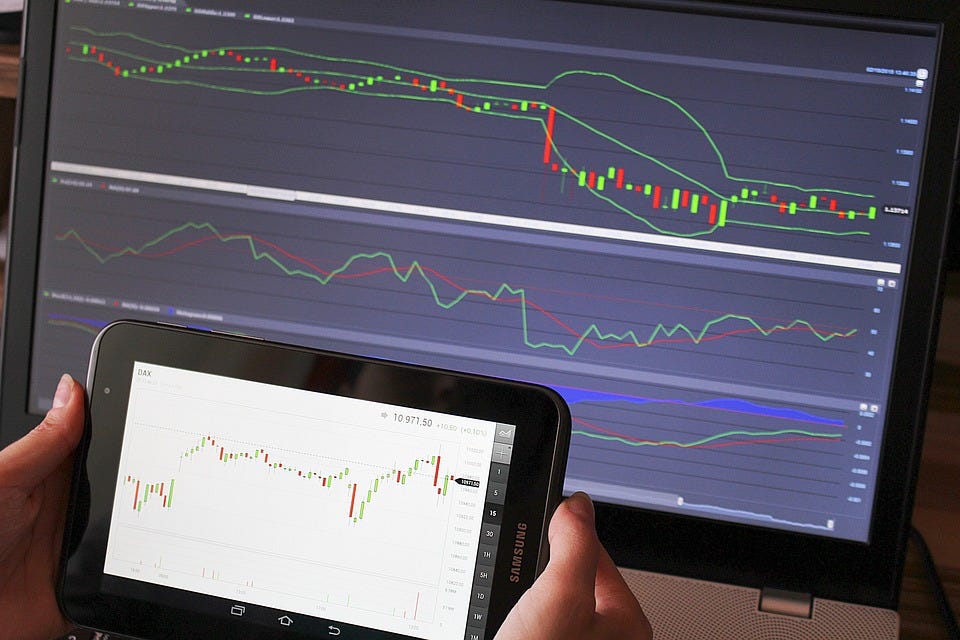If you have any interest in the financial market, you've probably come across an advertisement for an online trading platform trying to get you to try their service.
Online trading platforms are trading tools that grant traders access to the stock market, foreign exchange, and other financial instruments.
However, there's more than meets the eye regarding these online trading platforms.
In this article, we look at the complexity of online trading platforms and their components.
User Interface Design
When using an online trading platform the first thing any trader observes is the user interface (UI).
Often the UI design of a trading platform may be a determining factor in choosing a trading platform.
A good UI should be simple, easy to use, and provide all the information a trader needs to analyze trends and make informed trades.
This design should also be optimized across platforms, including mobile devices, desktops, and tablets among others.
Security
Online trading platforms must deploy the most comprehensive security measures feasible as cyber-attacks become increasingly sophisticated.
These safeguards include the use of secure methods for data encryption, two-factor authentication, and rigorous access limitations.
Furthermore, to secure users' sensitive information, online trading platforms must stay up with the newest security advances and constantly upgrade their security procedures.
Market Data
Market data is an essential component of online trading platforms, and traders rely on precise, real-time data to make smart investment decisions.
Different platforms employ data feeds from several sources to give traders the most up-to-date market data.
These feeds must be dependable, accurate, and timely for traders to make informed investing decisions.
The importance of having access to comprehensive and accurate market data has become even more evident with events like the iFX EXPO Mexico, which brings together the largest Fintech, finance, and brokerage entities in Latin America. These expos not only serve as a hub for networking, but also highlight the evolving trends and technologies impacting financial markets worldwide.
Order Management System
The order management system (OMS) is the backbone of online trading platforms, processing orders in real time.
The OMS must be robust enough to handle a high volume of transactions and execute them with speed and accuracy.
Additionally, the OMS must be flexible enough to handle a wide range of order types, including market orders, limit orders, and stop orders.
Ensuring the OMS's reliability is essential to avoid system downtime or any other issues that could affect traders' ability to trade stocks online.
Compliance
Compliance is a common term you will come across in the securities trading industry.
Simply put, online trading platforms are required to comply with fiduciary regulations like know-your-customer(KYC), data protection laws, and anti-money laundering regulations.
This is a significant component of online trading platforms because non-compliance can mean facing severe legal penalties.
As such, online trading platforms run robust compliance systems to ensure they implement best practices to prevent non-compliance penalties.
Developing Stock Trading App
Stock trading online presents a variety of obstacles, encompassing user verification, live data updates, order execution, and regulatory compliance.
A top-notch trading application should possess an instinctive interface, be easy to navigate, and furnish users with up-to-the-minute market information.
Furthermore, the app must be capable of managing a substantial number of transactions and ensure a secure trading atmosphere for its users.
User Experience
The platform's design should strike a balance between simplicity and sophistication.
And should also strike one between intuitive navigation and a logical structure that enables traders to find the information they need effortlessly.
Furthermore, the platform should provide an extensive range of tools and resources, including real-time market data, charting tools, and news feeds, to empower traders in making informed decisions.
This is because creating a positive user experience is paramount in retaining and attracting new users to the platform.
Integration with Third-party Services rework
Many online trading platforms integrate with third-party services, including payment processors, data providers, and compliance software.
Such integration can augment the functionality of the platform and offer users additional features and tools.
Nevertheless, it is crucial for online trading platforms to ensure the security of these integrated services and their compliance with regulatory requirements, as they may also introduce potential security risks.
Comments
Loading comments…
